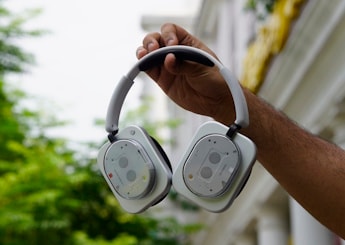- Home
- Science
- Science News
- Scientists Cure COVID in Hamsters With Inhaled Nanobodies: Study
Scientists Cure COVID in Hamsters With Inhaled Nanobodies: Study
The scientists said their therapy using the nanobody, called PiN-21, could provide a convenient and low-cost option to mitigate the ongoing pandemic

Photo Credit: Reuters
It is yet to be determined if this COVID-19 cure will work on humans
Researchers from the University of Pittsburgh School of Medicine in Pennsylvania, US, said in a recent paper that they have developed an “effective, low-cost therapeutic intervention” to block the coronavirus disease (COVID-19) in Syrian hamsters. The therapy, called the Pittsburgh inhalable Nanobody 21 (PiN-21), could provide a needle-free alternative to monoclonal antibodies for treating early infections. The nanobody is administered directly through the nose or by inhalation, the researchers said. However, it's yet to be determined whether this treatment could work for humans.
Published in the peer-reviewed journal Science Advances, the paper said intranasal delivery of PiN-21 at 0.6 mg/kg protects infected animals (Syrian hamsters) from weight loss and substantially reduces viral burdens in both lower and upper airways. The researchers said that their therapy could provide a convenient and low-cost option to mitigate the ongoing pandemic.
Notably, they added, PiN-21 aerosols can be inhaled to target respiratory infection that drastically reduces viral loads and prevents lung damage and viral pneumonia.
To assess the efficacy of PiN-21, twelve hamsters were divided into two groups and infected with the coronavirus via the intratracheal route. Shortly after infection, the nanobody was delivered intranasally at an average dose of 0.6 mg/kg. The scientists then monitored the animals daily for weight change and symptoms of the disease. The hamsters showed rapid weight loss, up to 16% of their initial body weight, after a week of infection. However, concurrent delivery of PiN-21 through the nose eliminated any significant weight loss in the infected animals.
“We are very excited and encouraged by our data suggesting that PiN-21 can be highly protective against severe disease and can potentially prevent human-to-human viral transmission," Yi Shi, the paper's co-senior author and assistant professor of cell biology at the University of Pittsburgh, told Science Daily website.
The researchers added that nanobodies and vaccines are not aimed at competing with one another and they can complement each other. Vaccines can prevent new cases, but nanobodies can be used to treat those who already are sick and those who can't get vaccinated for other medical reasons.
"COVID-19 is now a preeminent disease of the 21st century. Delivering the treatment directly to the lungs can make a big difference for our ability to treat it," Doug Reed, the study co-author and associate professor of immunology at the varsity, told the website.
Get your daily dose of tech news, reviews, and insights, in under 80 characters on Gadgets 360 Turbo. Connect with fellow tech lovers on our Forum. Follow us on X, Facebook, WhatsApp, Threads and Google News for instant updates. Catch all the action on our YouTube channel.
Related Stories
- Samsung Galaxy Unpacked 2026
- iPhone 17 Pro Max
- ChatGPT
- iOS 26
- Laptop Under 50000
- Smartwatch Under 10000
- Apple Vision Pro
- Oneplus 12
- OnePlus Nord CE 3 Lite 5G
- iPhone 13
- Xiaomi 14 Pro
- Oppo Find N3
- Tecno Spark Go (2023)
- Realme V30
- Best Phones Under 25000
- Samsung Galaxy S24 Series
- Cryptocurrency
- iQoo 12
- Samsung Galaxy S24 Ultra
- Giottus
- Samsung Galaxy Z Flip 5
- Apple 'Scary Fast'
- Housefull 5
- GoPro Hero 12 Black Review
- Invincible Season 2
- JioGlass
- HD Ready TV
- Latest Mobile Phones
- Compare Phones
- Realme P4 Lite
- Vivo V70
- Vivo V70 Elite
- Google Pixel 10a
- Tecno Camon 50
- Tecno Camon 50 Pro
- Lava Bold N2
- Vivo V60 Lite 4G
- LG Gram 14 (2026)
- Asus Vivobook 16 (M1605NAQ)
- Infinix Xpad 30E
- Brave Ark 2-in-1
- Amazfit T-Rex Ultra 2
- boAt Chrome Iris
- Xiaomi QLED TV X Pro 75
- Haier H5E Series
- Asus ROG Ally
- Nintendo Switch Lite
- Haier 1.6 Ton 5 Star Inverter Split AC (HSU19G-MZAID5BN-INV)
- Haier 1.6 Ton 5 Star Inverter Split AC (HSU19G-MZAIM5BN-INV)







![[Partner Content] OPPO Reno15 Series: AI Portrait Camera, Popout and First Compact Reno](https://www.gadgets360.com/static/mobile/images/spacer.png)









